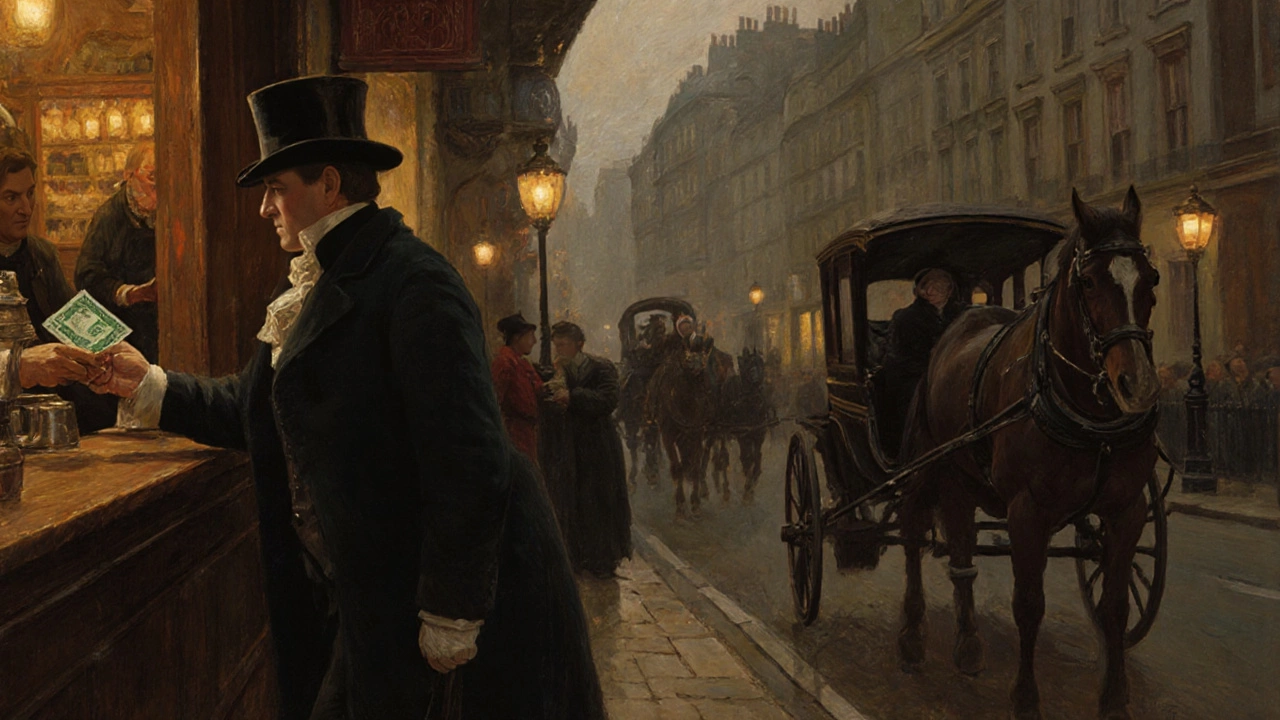UK Money Slang: Speak Like a Brit When Talking Cash
Ever heard someone say they need a few quid and wondered what’s up? In the UK, money talks come with a whole set of nicknames that can sound confusing if you’re not used to them. Knowing these terms helps you understand locals, sound more natural, and avoid awkward moments when you’re out buying a coffee or chatting about rent.
Common Everyday Terms
Here’s the quick cheat sheet most Brits use daily:
- Quid – the go‑to word for a pound. “That shirt cost thirty quid.”
- Bob – old slang for a shilling, now rare but you might hear it in jokes.
- Fiver – a five‑pound note. “Can you lend me a fiver?”
- Tenner – a ten‑pound note. “That dinner was only a tenner.”
- Score – twenty pounds. “He paid a score for the tickets.”
- Pony – twenty‑five pounds. “It costs a pony to get in.”
- Ton – a hundred pounds. “She saved a ton for a holiday.”
- Grand – one thousand pounds. “They bought the car for a grand.”
- Monkey – five hundred pounds. “He won a monkey at the casino.”
- Bag – one thousand pounds, especially in northern England. “That’s a proper bag.”
These words pop up in casual chats, on pubs’ notice boards, and even in TV shows. The key is they’re informal – you won’t hear a banker calling a £5 note a “fiver” in a formal report.
When Not to Use Slang
If you’re writing an email to a landlord, filling out a bank form, or speaking in a job interview, stick to the plain numbers. Slang can sound unprofessional and might even be misread. Also, regional differences matter: someone from Scotland might drop the term “nicker” for a pound, while folks in the south rarely use it.
Another tip: watch the tone. Using slang with strangers can feel too familiar, but with friends it’s perfectly fine. If you’re unsure, start with the standard term and let the other person lead the way.
Want to sound authentic? Toss in a few of these words when you’re ordering food, chatting about shopping, or describing a price. For example, “That pizza was only a tenner, can you believe it?” instantly shows you’ve picked up on local lingo.
Remember, slang evolves. New terms like “gob” for a ten‑pound note sometimes appear, but the classics above have stuck around for decades. Keep an ear out, ask if you don’t get a term, and you’ll blend in faster than you think.
So next time you hear someone talk about a “pony” or a “monkey,” you’ll know exactly what they mean – and you’ll be ready to drop those words into your own conversation. Happy chatting, and may your pockets stay full of the right kind of quid!

Why Is 25 Pounds Called a Pony? Uncovering the British Slang Origin
Discover why a £25 note is called a "pony"-the history, wartime roots, and modern usage of this classic British slang term.
Categories
- Storage (30)
- Bathroom (21)
- Sofas (20)
- Curtains (15)
- Home Decor (12)
- Cushions (12)
- Mirrors (12)
- Bedding (11)
- Kitchenware (11)
- Rugs (10)
Popular Articles



